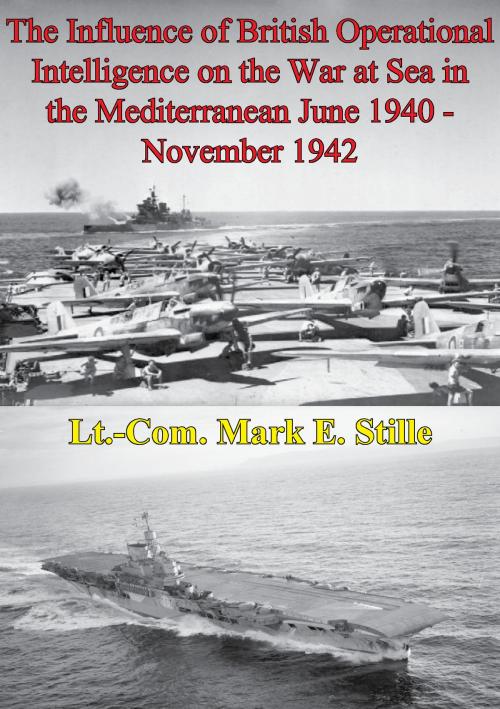The Influence Of British Operational Intelligence On The War At Sea In The Mediterranean June 1940 - November 1942
Nonfiction, History, Germany, European General, Military, United States| Author: | Lieutenant Commander Mark E. Stille | ISBN: | 9781782898245 |
| Publisher: | Lucknow Books | Publication: | August 15, 2014 |
| Imprint: | Lucknow Books | Language: | English |
| Author: | Lieutenant Commander Mark E. Stille |
| ISBN: | 9781782898245 |
| Publisher: | Lucknow Books |
| Publication: | August 15, 2014 |
| Imprint: | Lucknow Books |
| Language: | English |
Intelligence derived from a number of sources, primarily the decryption of high-level German and Italian communications, provided British forces in the Mediterranean with extraordinary insights into Axis naval operations. This level of intelligence was instrumental to the success of British forces during most of the decisive points during the naval war in the Mediterranean and indirectly had great influence on the ground war in North Africa. Many of the hallmarks of the nature in which operational intelligence was used retains relevance for today’s operational commander. These include use of intelligence to identify and attack enemy centers of gravity, the importance of incorporating intelligence into the planning process, use of intelligence as a force multiplier but not as a force substitute, and the dissemination and handling of sensitive intelligence.
Intelligence derived from a number of sources, primarily the decryption of high-level German and Italian communications, provided British forces in the Mediterranean with extraordinary insights into Axis naval operations. This level of intelligence was instrumental to the success of British forces during most of the decisive points during the naval war in the Mediterranean and indirectly had great influence on the ground war in North Africa. Many of the hallmarks of the nature in which operational intelligence was used retains relevance for today’s operational commander. These include use of intelligence to identify and attack enemy centers of gravity, the importance of incorporating intelligence into the planning process, use of intelligence as a force multiplier but not as a force substitute, and the dissemination and handling of sensitive intelligence.






![Cover of the book Experiences of a Dug-Out, 1914-1918 [Illustrated Edition] by Lieutenant Commander Mark E. Stille](https://www.kuoky.com/images/2015/november/300x300/9781786255259-dq0Y_300x.jpg)






![Cover of the book The AAF In The Invasion Of Southern France [Illustrated Edition] by Lieutenant Commander Mark E. Stille](https://www.kuoky.com/images/2014/august/300x300/9781782894650-JNFf_300x.jpg)

![Cover of the book Four Weeks In The Trenches; The War Story Of A Violinist [Illustrated Edition] by Lieutenant Commander Mark E. Stille](https://www.kuoky.com/images/2014/june/300x300/9781782891956-5rc9_300x.jpg)